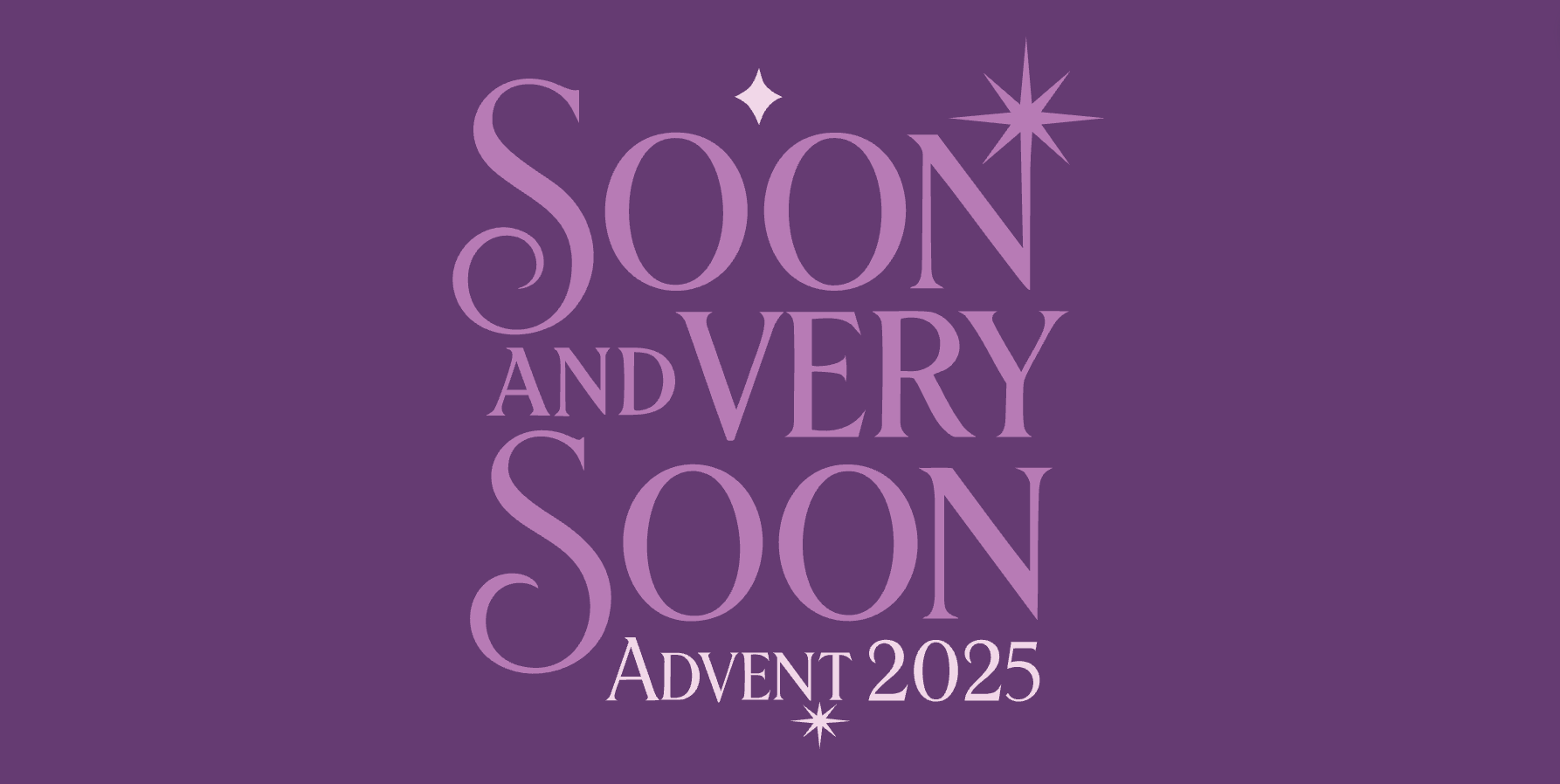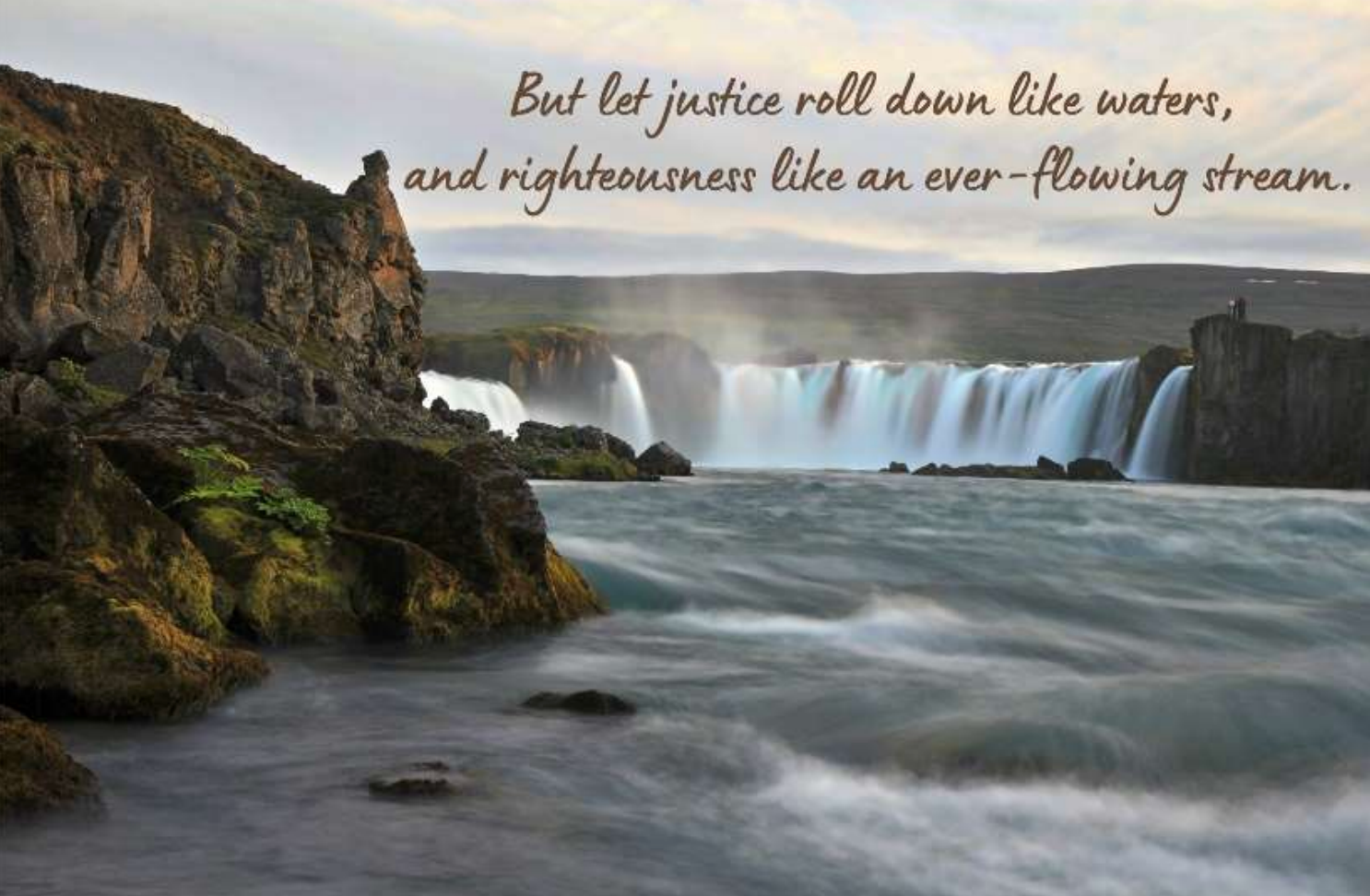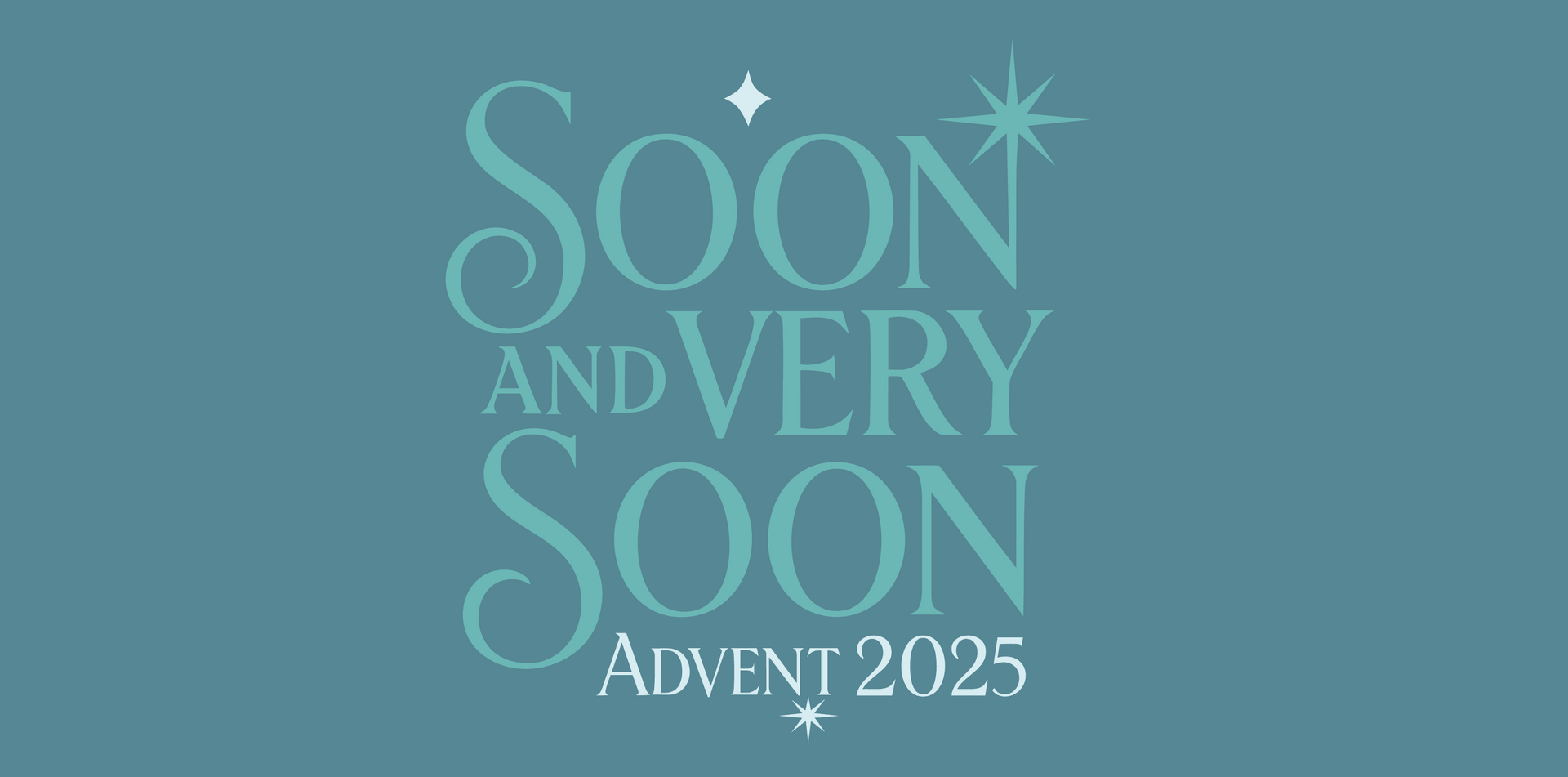Sermon 04.23.2023: The Righteous Widow and the Scandalous System
Allyson McKinney Timm will preach on “The Righteous Widow and the Scandalous System,” reflecting on the story of Tamar and her father-in-law, Judah, as shared in Genesis 38:1-27. Although Tamar’s ruse is shocking, she is ultimately vindicated. We’ll ponder why, and what this story reveals about God’s plans and purposes.
Scripture
Deuteronomy 25:5-10
5 If brothers are living together and one of them dies without a son, his widow must not marry outside the family. Her husband’s brother shall take her and marry her and fulfill the duty of a brother-in-law to her.
6 The first son she bears shall carry on the name of the dead brother so that his name will not be blotted out from Israel.
7 However, if a man does not want to marry his brother’s wife, she shall go to the elders at the town gate and say, “My husband’s brother refuses to carry on his brother’s name in Israel. He will not fulfill the duty of a brother-in-law to me.” 8 Then the elders of his town shall summon him and talk to him. If he persists in saying, “I do not want to marry her,” 9 his brother’s widow shall go up to him in the presence of the elders, take off one of his sandals, spit in his face and say, “This is what is done to the man who will not build up his brother’s family line.” 10 That man’s line shall be known in Israel as The Family of the Unsandaled.
Genesis 38:1-27
Judah and Tamar
38 At that time, Judah left his brothers and went down to stay with a man of Adullam named Hirah.
2 There Judah met the daughter of a Canaanite man named Shua. He married her and made love to her; 3 she became pregnant and gave birth to a son, who was named Er.
4 She conceived again and gave birth to a son and named him Onan.
5 She gave birth to still another son and named him Shelah. It was at Kezib that she gave birth to him.
6 Judah got a wife for Er, his firstborn, and her name was Tamar.
7 But Er, Judah’s firstborn, was wicked in the Lord’s sight; so the Lord put him to death.
8 Then Judah said to Onan, “Sleep with your brother’s wife and fulfill your duty to her as a brother-in-law to raise up offspring for your brother.”
9 But Onan knew that the child would not be his; so whenever he slept with his brother’s wife, he spilled his semen on the ground to keep from providing offspring for his brother.
10 What he did was wicked in the Lord’s sight; so the Lord put him to death also.
11 Judah then said to his daughter-in-law Tamar, “Live as a widow in your father’s household until my son Shelah grows up.” For he thought, “He may die too, just like his brothers.” So Tamar went to live in her father’s household.
12 After a long time Judah’s wife, the daughter of Shua, died. When Judah had recovered from his grief, he went up to Timnah, to the men who were shearing his sheep, and his friend Hirah the Adullamite went with him.
13 When Tamar was told, “Your father-in-law is on his way to Timnah to shear his sheep,”
14 she took off her widow’s clothes, covered herself with a veil to disguise herself, and then sat down at the entrance to Enaim, which is on the road to Timnah. For she saw that, though Shelah had now grown up, she had not been given to him as his wife.
15 When Judah saw her, he thought she was a prostitute, for she had covered her face.
16 Not realizing that she was his daughter-in-law, he went over to her by the roadside and said, “Come now, let me sleep with you.”
“And what will you give me to sleep with you?” she asked.
17 “I’ll send you a young goat from my flock,” he said.
“Will you give me something as a pledge until you send it?” she asked.
18 He said, “What pledge should I give you?”
“Your seal and its cord, and the staff in your hand,” she answered. So he gave them to her and slept with her, and she became pregnant by him.
19 After she left, she took off her veil and put on her widow’s clothes again.
20 Meanwhile Judah sent the young goat by his friend the Adullamite in order to get his pledge back from the woman, but he did not find her.
21 He asked the men who lived there, “Where is the shrine prostitute who was beside the road at Enaim?”
“There hasn’t been any shrine prostitute here,” they said.
22 So he went back to Judah and said, “I didn’t find her. Besides, the men who lived there said, ‘There hasn’t been any shrine prostitute here.’”
23 Then Judah said, “Let her keep what she has, or we will become a laughingstock. After all, I did send her this young goat, but you didn’t find her.”
24 About three months later Judah was told, “Your daughter-in-law Tamar is guilty of prostitution, and as a result she is now pregnant.”
Judah said, “Bring her out and have her burned to death!”
25 As she was being brought out, she sent a message to her father-in-law. “I am pregnant by the man who owns these,” she said. And she added, “See if you recognize whose seal and cord and staff these are.”
26 Judah recognized them and said, “She is more righteous than I, since I wouldn’t give her to my son Shelah.” And he did not sleep with her again.
27 When the time came for her to give birth, there were twin boys in her womb.
Sermon Text
It is a joy to be back at Calvary. This was my church home when I lived in San Francisco years ago and it still feels like home because I see so many friends. This church shaped me profoundly, encouraged my faith, and upheld me in love when I set off to pursue a career in human rights nearly 20 years ago.
The Story of Tamar
Today, I’m going to share a bible story you may not have heard before—although some of it may begin to sound familiar.
What in the world is going on in this scripture? This story feels scandalous! What is happening here?
First, we meet Judah, the brother of Joseph, who was sold into slavery. Judah has a wife and three sons and his eldest son, Er, marries a woman named Tamar. Before long, her husband passes away, leaving Tamar a widow
Now, in ancient Israel, most women did not enjoy the privilege of owning or inheriting property themselves; they had to depend on a male relative—first their father, then their husband, and then if they were lucky, their boy child—a male heir—who was their lifeline, who secured their future.
There was a sort of safety net for widows in Tamar’s position. A custom called Levirate marriage, which we heard about in Deuteronomy, required the widow’s brother-in-law to marry her, ensuring her a place in the family and the community; ensuring her a future.
The idea was that the brother-in-law would father a child with her, to continue the name of her late husband and produce a male heir, who
could inherit property.
So Tamar is married to her brother-in-law, Onan. But then he passes away, heaping loss upon loss, leaving her widowed and vulnerable a second time.
By now, Tamar’s father-in-law, Judah, has become spooked and fearful. He suspects she’s the reason for his sons’ deaths. Though the story tells us otherwise, she is his scapegoat.
So Judah denies her a lifeline. Instead, he sends Tamar back to her father’s house, which is devastating, because she is “neither a virgin nor a wife nor a mother,” which makes her a nobody; nowhere does she belong.
It is a life-altering injustice. A widow with no sons would have become part of the most vulnerable group in society, a charity case.
Time passes, Judah’s wife dies, his youngest son matures, and it becomes clear that he’s never going to help Tamar. He refuses her the one thing she is owed in this patriarchal system— a husband, a child, and a place in his family.
What does Tamar do? Tamar finds a way to claim that for herself—to assert her own right, if you will.
Tamar disguises herself when Judah comes to town. He takes her to be a prostitute, solicits her, and unwittingly fathers a child by her, continuing the family line.
Tamar’s ruse was a radical one, by any stretch. It was at the time—totally out of bounds.
So Imagine her desperation. Imagine how hopeless she must have felt. Imagine: she had nothing left to lose. Because there’s no way for her to survive on her own merit. The only option
is to find a male relative—somehow, some way—and latch on.
We call that patriarchy.
And it is a scandal. It is a jaw-dropping scandal. It is dehumanizing and degrading to everyone involved. A legal order that presumes to direct the most intimate decisions about conceiving and bearing children has clearly overreached
And yet, Tamar’s uncanny scheme works: she becomes pregnant!
But when Judah—still in charge of her—finds out, his judgment is swift and merciless. Judah immediately decides—without even summoning Tamar—that she should be put to death. And he really is quite mean about it, because stoning isn’t enough. He orders her to be burned.
Patriarchy has always been upheld by the cruelest forms of violence. That is our clue that it is not God’s good plan for us.
But wait—there’s more to the story—the tables are about to turn. Because at their encounter,
Tamar required some collateral from Judah: his signet, cord & staff, personally identifiable information, and symbols of his authority.
Judah is confronted: he’s the father of this child, and further, he’s the one who has forsaken Tamar in the first place, left her with no family, no future, no place to belong, no way to get by.
Judah is forced to admit, “She is more righteous than I.”
A Scandalous System
We can see where Judah went wrong. He denied justice to a widow in his family.
The one lifeline the law gave Tamar—problematic as it was—Judah withheld it.
He was hypocritical and harsh. Isn’t it interesting—Judah who had just gone (he thought) to a prostitute, was ready to turn around and take her life.
Perhaps that’s why Jesus, in the Gospel of John, calls out the men who accuse a woman of adultery, by inviting those without sin to throw the first stone. They just had to leave.
We can see how Judah fell short.
But Tamar—righteous?
How can this be, given what transpired? How do we make sense of this, in light of what happened? There is still something unsettling about this story—something we don’t want to affirm.
There is something scandalous in this story, but the text makes clear the scandal is not Tamar.
She cannot be the scapegoat. No, the scandal is not Tamar’s deception, Onan spilling his seed, or even illicit sex, though no one’s trying to justify it.
The real scandal is the system.
It’s a system that renders a huge class of people, women and girls, half the population or more, vulnerable to self-interest, prejudice, fear, and lust of others.
The goal was a good one: inclusion, provision, a hope, a future for a widow like Tamar.
The method: not great. Dehumanizing. Degrading. Very different treatment for women versus men.
Our ancestors must have been doing the best they knew how. But the system was fundamentally flawed because it denied the truth of human equality right there on the first page of the Hebrew Bible, Genesis 1:27: “in God’s image, God made them, male and female, God made them.”
Equal at creation. But such a different status under the law.
And this Levirate marriage system never really worked too well. It shows up twice in the Bible—in today’s passage, and in the book of Ruth. Ruth, the Moabite, you may recall, she had to lie down and uncover the feet of her relative Boaz, (she had to make herself sexually available), as her lifeline in a moment of vulnerability. Not a great system.
The Old Testament is filled with admonition to care for the widow and the orphan, another clue
that the system wasn’t working, people had to be pressed to uphold it men like Judah and Boaz had choices but women like Tamar and Ruth had few. A manifestly unequal system.
Justice for the widow becomes a biblical refrain,
a holy exhortation to elevate these women to a place of greater equality with those who enjoyed the privileges, the rights that we all need to survive.
How long do you keep plugging holes in a broken system, before you say, “Hey, maybe we can do things differently, maybe we can try another way.”
Our Systems of Justice
We know a thing or two about scandalous systems in our time and place.
We know all about meting out different rights to different people. We’ve had “separate but equal,” and it has taken a mighty Civil Rights Movement to put the lie to that disingenuous doctrine. Separate never really was equal; it was just a gross excuse to subjugate Black people in America. The racist impact lingers in every corner of our culture, our criminal justice system, our massive racial wealth gap, and we must keep fighting to overcome the lie—the scandal—of racism with the truth of human equality.
What if I told you that I sat in a U.S. Senate hearing in our nation’s capital just two months ago and I heard lobbyists, Senators, even scholars try to justify a doctrine of “different but equal, “which has never been eradicated from our legal system, even in theory.
Let me set the stage for you. You may think all Americans have equal rights under the U.S. Constitution—most folks do. But it’s not true.
Women were not included at this nation’s founding. Something about patriarchy.
While some measure of Equal Protection has been granted to women—case by case, over the last 50 years—it has never been the full measure that men enjoy under the 14th Amendment, and it is all on the chopping block under this Supreme Court.
This hearing considered a simple amendment to ensure equal rights regardless of sex—the Equal Rights Amendment, or ERA. There, we heard ERA opponents claim that women are “different but equal.” We heard some try to sell the idea that women don’t need or shouldn’t want the same legal rights as men under the Constitution. “That sort of equality would be harmful,” they said. “You have enough equality today,” they claimed. “Sure, it’s not the same equality, it’s different. But it’s enough—to keep you protected—but not too much.”
Like Tamar?
“Different but equal”?
Although one Supreme Court Justice outright disputed that the Equal Protection Clause should apply to women.
“No one ever thought that’s what it meant,” Justice Antonin Scalia said.
The men, he meant, who passed the Fourteenth Amendment back in 1868.
“Different but equal”?
While the U.S. tolerates the highest maternal mortality rate in the wealthy world allows Black mamas to die at rates three times of white mamas, and all pregnant people to risk shamefully high, avoidable rates of death or lifelong disability.
“Different but equal”?
Although today four women will be murdered by their intimate partners. And tomorrow the same thing will happen. And the next day. Every single day in America. How many of their names do we know?
“Different but equal”?
When a working mother faces a seven percent wage penalty for each child she bears because we can’t curb the wage gap, given the way courts have stacked the decks against women and protected corporations.
With all the hypocrisy of Judah condemning Tamar, some lawmakers acted like women who seek abortions should bear the shame, and be the scapegoats, while ignoring the gender-based violence that gets worse during pregnancy, the poverty that most abortion patients are facing, the failure of our healthcare system, and the absence of affordable childcare that makes having more children feel impossible to so many, especially the poor.
By the way—bathrooms are not the issue. Homes and hospitals and workplaces are dangerous for women; and some folks are trying to make this about the ladies’ room—which isn’t going anywhere, anyway. Twenty-six states have equality in their state constitutions and I can go to the bathroom just fine in any of them. What I cannot do is tell my 11-year-old niece in Florida that she has equal dignity or rights in the United States of America. She doesn’t.
The late heroine of the human rights movement, the Rev. Dr. Pauli Murray—brilliant activist, lawyer, Episcopal priest—called the denial of equal rights to women “as pernicious as separate but equal.”
As a Black, queer woman, Murray maintained she needed sex equality just as much as racial equality. If women could not achieve true equality under the Constitution as it stands,
the case for an Equal Rights Amendment would be “unassailable.”
At Justice Revival, the ministry I serve, we have been making the argument for the ERA[1], with interfaith partners and leaders across the country.
“All people are equally valuable in the sight of our Creator, and we deserve equal regard in human laws and legal systems.”
It really is that simple—and that revolutionary.
But to hear opponents tell it, the ERA is about as scandalous as the story of Tamar and Judah.
You have enough equality, they say, and if you had any more it would really be chaos.
They demand women accept “different but equal.
I’m here to tell you, it’s a “No” for me. No, thank you!
No “separate but equal,”
No “equal but different,”
No “different but we’ll protect you.”
I don’t believe that for a minute. This shell game of double standards has never been fair. And it has never worked.
The truth is that rights give power to those who’ve been pushed to the margins. Rights lift up those who’ve been held down. Rights account for the view of the victimized. Rights are vital to Justice in a world of human sin.
It is time to move beyond the hollow myth of special protections for women to an urgently awaited reality of equal justice under law, equal human rights for all.
Equal dignity and rights for all our brothers and sisters. All, yes all, our female and femme and queer, transgender and nonbinary, gorgeously diverse, inter-generational, interfaith human family
One principle of equal human rights for all. Nothing could be more fair, or more faithful.
Tamar wasn’t the scandal; it was the system. She asserted her rights, and she was vindicated. Tamar is named in Matthew’s Gospel, as a foremother of our faith, a woman whose lineage gave rise to the house of David, and ultimately, our savior Jesus—who taught us all about troubling corrupt systems, and challenging hypocrisy.
Tamar’s fate, as a widow on the margins, mattered to God. And God’s purposes could only be fulfilled, when she was included as part of the human family, and when her rights were realized.
AMEN.
[1] https://justicerevival.org/advocacy/faith-4-equal-rights-amendment-campaign/











